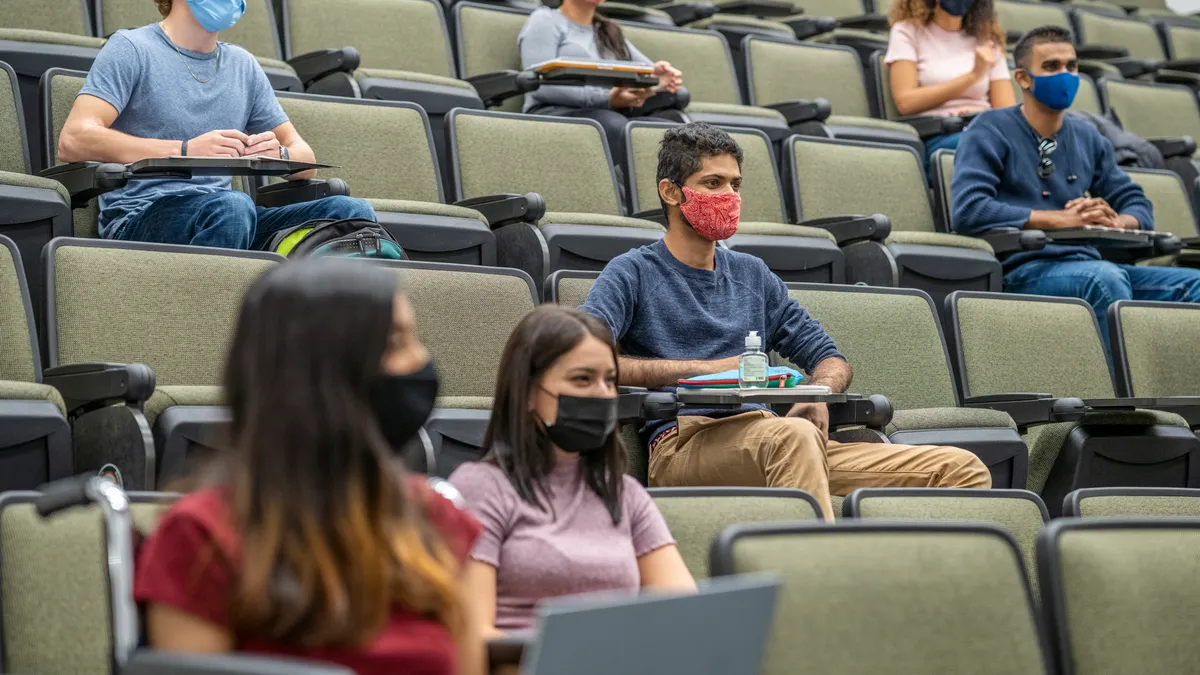Dive Brief:
- Twenty-four states allow at least some community colleges to offer bachelor's degrees, according to a recent report from left-leaning think tank New America that offers one of the most comprehensive looks yet at the national landscape.
- Support for community colleges with bachelor's degrees has recently been gaining more traction. Seven of the 24 community college baccalaureate, or CCB, states have been authorized in the last five years, according to the report.
- Business programs are the most popular bachelor's degrees offered by community colleges, followed by those in health professions, education, nursing, and computer and information sciences.
Dive Insight:
Whether community colleges should confer bachelor's degrees has been a hotly contested issue. While many lawmakers favor the change to meet local labor shortages, officials at four-year universities often say it allows community colleges to encroach into their territory. Some critics are also concerned these schools will award bachelor's degrees of a lower quality than those offered by four-year colleges.
Still, the idea has picked up steam in recent years, especially as a way to meet local workforce shortages. "This growth in a relatively short time span may indicate a growing perception that the CCB program is an important access point for students who might not otherwise pursue a bachelor's degree," the report's authors wrote.
Allowing community colleges to offer bachelor's degrees is often touted as a way to help address workforce shortages in healthcare professions, especially nursing.
Nursing programs account for 11.2% of all CCB programs nationally, while other STEM programs represent 25.6% of them.
Colorado and Texas are among the states that have authorized community colleges to confer bachelor's programs in nursing, with both seeing "sizable scale-up" in such degrees, according to the report. This year, Ohio became the most recent state to pass legislation allowing two-year schools to award bachelor's degrees in nursing.
Most states limit four-year programs at community colleges to those that meet a local labor force need. Some also prohibit two-year schools from duplicating programs offered by nearby public four-year institutions.
Yet policies are not uniform across states. While some allow all community colleges to offer bachelor's degrees, others limit this authority to only select institutions. Moreover, two-year schools often have to go through arduous processes to offer four-year diplomas, including changing their regional accreditation.
In Florida, which has allowed community colleges to award bachelor's degrees for 20 years, all community colleges have at least one approved four-year program, according to the report. But it took the state the entirety of those two decades to achieve that goal.
Some other CCB states haven't progressed as much. Two, Oregon and Arizona, have no community colleges with approved bachelor's programs, while others have only a handful.














